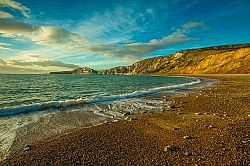

A review led by former Fisheries Minister Richard Benyon is calling for the introduction of Highly Protected Marine Areas (HPMAs) in English waters.
The review was commissioned in 2019 on World Ocean Day by then Environment Secretary Michael Gove, as part of the Government's strategy to protect country's waters. The Highly Protected Marine Areas would allow greater recovery of the marine ecosystem, improve biodiversity and support the development of new habitats.
The "Blue Belt" already protects an area of 92,000 km2 of English seas, and the introduction of new Highly Protected Marine Areas would provide for greater protection through a "whole site approach" and only permitting certain activities within their boundaries, such as scuba diving, kayaking and vessel transit.
Activities, such as fishing, construction and dredging would be prohibited in those areas as they can have a damaging effect on habitats or wildlife. The review claims that introduction of those areas would lead to a significant improvement of biodiversity by giving the marine life the best chance to recover and thrive.
The review suggests that these measures could provide many social and economic benefits, such as increased tourism and recreational activities as well as opportunities for scientific research and education. Any potential fishing restrictions in these areas could be counterbalanced by a stronger and more diverse marine life, which could benefit the fishing industry in long-term, by providing areas where sea life can develop and breed undisturbed.
The key recommendations by the review include:
Chair of Natural England, Tony Juniper said: "I welcome the recommendations put forward by the Panel. This review is an important marker of how we can use highly protected areas to mitigate the impact of human activities on the ocean, and support its recovery to a more natural state.
"I thank the panel for their work and look forward to working with Defra as they consider how best to take forward the recommendations."